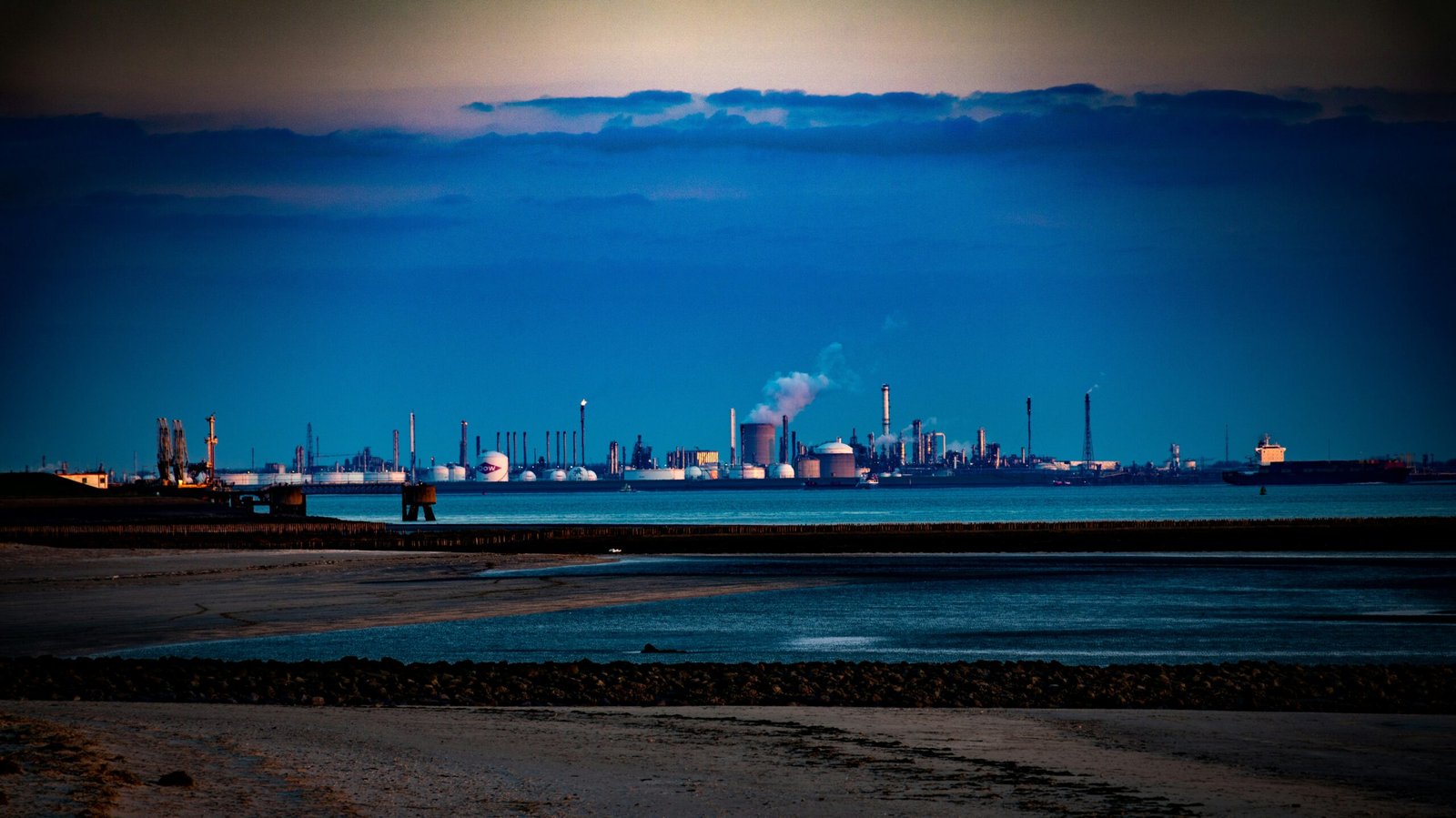Introduction to Specialty Chemicals
Specialty chemicals are a distinct category of chemical products that are manufactured for specific performance-based applications and market segments, differentiating them from bulk chemicals that are typically produced at a larger scale. These chemicals are typically formulated with a particular effect in mind, tailored to meet the unique requirements of various industries. The applications of specialty chemicals span a wide range of sectors, including pharmaceuticals, agriculture, automotive, electronics, personal care, and many others. For instance, in pharmaceuticals, specialty chemicals serve as active ingredients, excipients, or intermediates that play a crucial role in the development of medications.
One of the defining characteristics of specialty chemicals is their ability to enhance performance qualities of everyday products. This enhancement can manifest in several forms, such as improving the durability, safety, and efficiency of products. In agricultural applications, specialty chemicals facilitate the development of effective agrochemicals that boost crop yields while minimizing environmental impact. Similarly, in the construction industry, these chemicals are essential for producing high-performance materials that improve the longevity and resilience of structures.
The significance of specialty chemicals within various industrial applications cannot be overstated. Their tailored functionalities contribute vastly not only to product performance but also to manufacturing processes, thereby influencing cost-effectiveness and sustainability. As industries continue to evolve, so does the demand for specialty chemicals characterized by innovative formulations and eco-friendly properties.
Recent surveys focusing on trends within the specialty chemicals sector provide crucial insights into the evolving landscape of this important industry. These findings highlight the strategies employed by companies and address challenges that stakeholders may face in an increasingly competitive market. Understanding the results of such surveys is imperative for industry stakeholders looking to navigate future developments and capitalize on emerging opportunities.
Current Market Trends in Specialty Chemicals
The specialty chemicals market is currently experiencing a dynamic evolution, driven by various factors including sustainability initiatives, technological advancements, and shifting consumer preferences. Recent surveys have revealed that the sector is witnessing robust growth in particular areas, characterized by an increasing demand for innovative and environmentally friendly products. This shift is largely influenced by heightened awareness surrounding environmental issues, leading to a paradigm change in manufacturing processes and product offerings within the specialty chemicals domain.
One significant trend is the growing emphasis on sustainable practices. Industry players are increasingly adopting green chemistry principles to minimize environmental impact, which includes the reduction of harmful substances and emission controls. As consumers, particularly millennials and Gen Z, become more conscientious about their environmental footprint, their preferences are steering manufacturers in the specialty chemicals industry towards eco-friendly alternatives. This movement towards sustainable products is not only reshaping the product portfolio but is also facilitating entry into new markets focused on renewable resources.
Technological advancements also play a crucial role in shaping the specialty chemicals landscape. Innovations in production techniques, such as digitalization and automation, are optimizing operational efficiencies and enabling manufacturers to produce higher-quality products at reduced costs. Furthermore, the emergence of next-generation materials, including bio-based chemicals and advanced polymers, is providing a competitive edge in various applications ranging from automotive to consumer goods.
Key industries such as agriculture, pharmaceuticals, and electronics are experiencing notable transformations due to these trends. For instance, within the agricultural sector, specialty chemicals such as biopesticides and biofertilizers are gaining traction as sustainable alternatives to traditional products. Consequently, manufacturers and suppliers must remain agile, adapting to these evolving dynamics to harness new opportunities and maintain relevance in the specialty chemicals market.
Challenges Facing the Specialty Chemicals Industry
The specialty chemicals sector is currently navigating a landscape filled with numerous challenges that have been highlighted in recent industry surveys. One of the most pressing issues is the regulatory pressures that manufacturers face. Increased government regulations regarding environmental sustainability and chemical safety have compelled companies to invest heavily in compliance measures. This not only imposes additional costs but also demands significant changes in production processes. Therefore, businesses operating in the specialty chemicals domain must stay informed about shifting regulations while ensuring that they meet compliance requirements to avoid penalties.
Additionally, supply chain disruptions have significantly impacted the specialty chemicals industry. Factors such as geopolitical tensions, natural disasters, and the lingering effects of the COVID-19 pandemic have created vulnerabilities within supply chains. These interruptions can lead to delays in raw material procurement, which ultimately affects production timelines and profitability. Companies are being urged to develop more robust supply chain strategies, including diversified supply sources and improved inventory management, to mitigate the risks associated with these disruptions.
Economic fluctuations also pose a considerable challenge. Variations in demand due to recessions or booms can significantly affect pricing strategies and revenue generation for specialty chemicals firms. Industry leaders recommend that businesses adopt a flexible pricing model that can adapt to varying market conditions and consumer needs. Additionally, companies should invest in research and development to innovate their product offerings, ensuring that they remain competitive in a rapidly changing economic landscape.
In summation, understanding and addressing these challenges is crucial for companies in the specialty chemicals sector. By implementing effective strategies to navigate regulatory complexities, supply chain vulnerabilities, and economic instabilities, businesses can position themselves for long-term success in this dynamic industry.
Future Outlook for Specialty Chemicals
The specialty chemicals market is poised for significant evolution, influenced by a myriad of factors shaped by consumer demand, technological advancements, and a growing emphasis on sustainability. Recent surveys indicate that there is a pronounced shift towards more environmentally friendly products, driven by increasing consumer awareness regarding climate change and ecological sustainability. This is fostering innovation within the industry, prompting companies to invest in research and development aimed at producing greener chemical solutions.
Experts predict that the demand for specialty chemicals will continuously adapt to align with sustainability goals. Industries such as agriculture, cosmetics, and pharmaceuticals are already exploring biobased and biodegradable alternatives to traditional chemical products. This shift not only caters to consumer preferences but also aligns with global regulatory trends that favor reduced reliance on hazardous materials. As such, companies that emphasize sustainable practices will likely experience a competitive advantage in the marketplace.
Moreover, the integration of emerging technologies, such as artificial intelligence and machine learning, is set to revolutionize manufacturing processes in specialty chemicals. These technologies can enhance efficiency, reduce operational costs, and accelerate innovation by providing insights into consumer preferences and market trends more swiftly. Such advancements enable manufacturers to respond proactively to evolving market dynamics, potentially opening avenues for investment and growth.
Additionally, collaboration among stakeholders, including government bodies, NGOs, and industry leaders, will play a crucial role in shaping the future landscape of specialty chemicals. By leveraging collective resources and expertise, the industry can address challenges such as resource depletion and environmental impact more effectively. Overall, the outlook for specialty chemicals reflects a promising trajectory characterized by adaptability, innovation, and investment opportunities, paving the way for a sustainable and thriving industry in the coming years.









